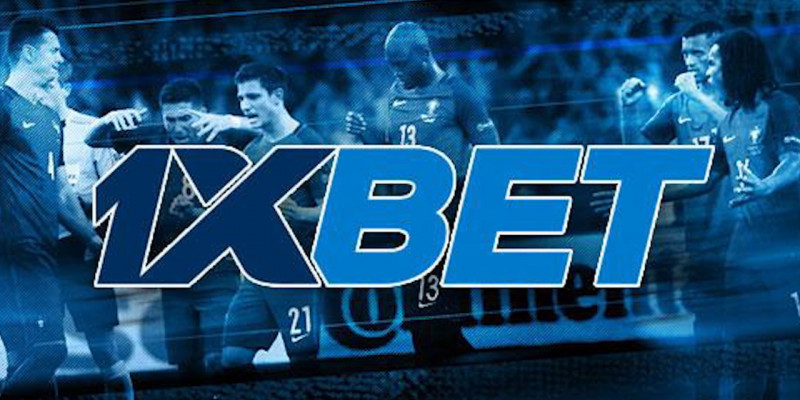
Sports betting is part skill, part discipline, and part understanding the market dynamics that drive odds and behavior. For those exploring options, it helps to start with a reputable platform; one option frequently referenced in international discussions about sportsbooks is sport betting 1xbet japan, though choice of bookmaker should always be guided by licensing, limits, and user protections. This article walks through core principles, strategies, practical tips, and the mindset necessary for enjoyable and sustainable sport betting.
Understanding odds and market types is fundamental. Odds quantify probability and determine potential returns. Decimal odds (common in Europe) show total return per unit staked, while fractional and American formats express the same information differently. Converting odds to implied probability helps bettors compare a book’s price to their own estimate of an event’s likelihood. Markets include moneyline (match winner), handicaps (giving advantage/disadvantage), totals (over/under), futures, and prop bets. Each market requires a tailored approach and awareness of liquidity, especially for niche events where limited volume can cause wide margins.
Bankroll management separates casual gamblers from long-term winners. A bankroll is the sum of money set aside solely for betting; it should never include funds meant for living expenses. Staking plans—flat staking, percentage staking, or Kelly criterion—help manage risk. Flat staking is simplest: bet the same amount each time. Percentage staking adjusts bet size to bankroll changes. The Kelly criterion mathematically optimizes growth by sizing bets proportional to perceived edge, but it demands precise probability estimates and tolerates large variance. Conservative bettors often use fractional Kelly or fixed-percentage plans to reduce volatility.
Value betting is the core long-term strategy: bet only when you find odds that understate your estimated probability of an outcome. To find value, develop models or disciplined heuristics for estimating probabilities. Models can range from simple ELO or Poisson-goal models for football to complex ratings systems that incorporate injuries, form, travel, and situational factors. Always account for the bookmaker margin; an attractive decimal price might still be poor value if the implied probability is inflated by high vig. Keep records—stake, odds, model prediction, result—to refine your edge over time.
Line movement is informative. Early lines reflect initial bookmaker views and risk limits; sharp money—bets from professional bettors—can move lines quickly. Watching how odds change between bookies and exchanges signals where value might exist or where insiders have information. Arbitrage opportunities occasionally appear when different bookmakers post conflicting prices, allowing risk-free profit by covering all outcomes. However, arbitrage requires speed, reliable funding across accounts, and awareness of limits and account restrictions; it’s increasingly difficult at scale due to automation and bookmaker surveillance.
Live betting adds another layer: markets shift based on unfolding action and emotional reactions from the market. Live markets can offer opportunities for sharper bettors who can process in-game information quickly—momentum, substitutions, weather, and referee decisions. Latency matters: automated traders and professional services often have faster feeds. Retail bettors can still find live value if they specialize on specific leagues or scenarios and have a disciplined process to avoid impulse bets, which tend to be higher-margin for bookmakers.
Specialization is a proven edge. Instead of betting across dozens of sports and leagues, focus on a narrow domain—specific leagues, handicaps, or prop markets—where you can develop deeper knowledge and faster reaction. Specialization allows more accurate models, better value spotting, and improved situational judgment. For example, understanding how a particular team performs after long travel or under certain weather conditions often beats generic public stats.

Psychology plays a big role. Cognitive biases—recency effect, gambler’s fallacy, overconfidence, and confirmation bias—can erode discipline. Successful bettors maintain an unemotional approach: stake size aligned to edge, acceptance of variance, and no chasing of losses. Set clear rules for maximum loss per day, week, or month, and step away when those thresholds are reached. Betting should complement entertainment, not replace financial planning or welfare.
Responsible gambling cannot be overstated. Only bet what you can afford to lose, use self-exclusion tools if necessary, and set deposit and staking limits with bookies. If betting stops being enjoyable or causes stress, it’s time to pause. Many jurisdictions require bookmakers to provide tools and support; seek them out if you notice worrying patterns. Keep a balance between betting as a hobby and other life activities.
Legal and regulatory context matters. Laws vary widely by country and region: some places allow multiple licensed operators, others restrict cross-border offerings. Bet only with licensed bookmakers that comply with consumer protections, transparent odds, and fair dispute resolution. In regulated markets, reporting and taxation rules differ; keep clear records for tax reporting and compliance.
Analytics and technology increasingly shape modern sport betting. Data providers, advanced metrics, and machine learning models let bettors harness richer signals. Public data—possession, expected goals, player tracking—can be integrated into predictive models. However, high-quality data often costs money, and the most marginal edges come from better features, not just more computing power. Combining quantitative models with qualitative insights—team news, coach tendencies, venue specifics—yields more robust predictions.
Practical tips for beginners: start small, learn to read odds, keep meticulous records, and understand variance. Test models with small stakes or paper betting before committing significant funds. Use multiple bookmakers to compare prices but prioritize those with favorable limits and transparent practices. Pay attention to withdrawals and verification procedures ahead of time to avoid surprises.
For advanced bettors, focus on execution: faster feeds, reliable automation for arbitrage or value hunting, and relationships with brokers or exchanges. Consider hedging strategies for large futures positions to lock profits or mitigate downside. Maintain an ongoing review: which markets perform, where models under- or overestimate, and how bookmaker margins change.
In summary, sport betting blends analysis, discipline, and responsible behavior. Whether you’re betting for fun or aiming to be profitable, grounding your approach in probability, bankroll management, and a clear ethical and legal framework increases enjoyment and sustainability. Keep learning, record everything, and treat each wager as a small experiment in judgment and risk management rather than a quick path to riches.




Add comment